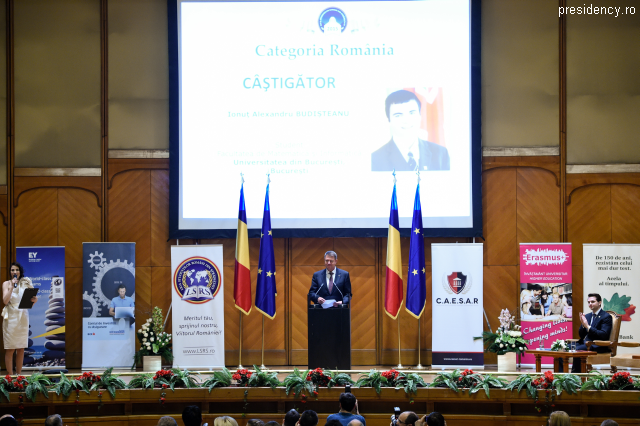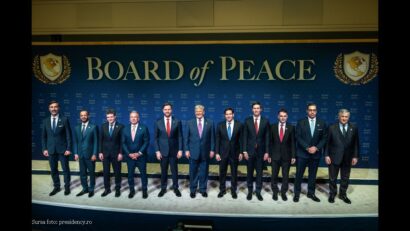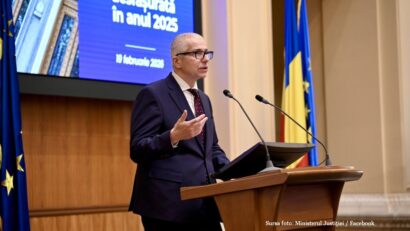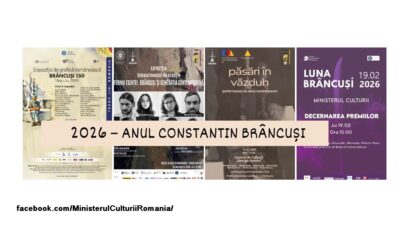Romanian students abroad
Romanias president and foreign minister attended on Thursday the Gala of the League of Romanian Students Abroad.

Bogdan Matei, 09.01.2015, 13:40
Traditionally very attached to the places of their birth, Romanians do not have a long history of migration. They only started leaving their native places in large groups towards the end of the 19th century, when thousands of farmers from Transylvania and Bukovina, two provinces that were at the time under Austro-Hungarian occupation, migrated to North America. The communist dictatorship that lasted half a century caused the migration of tens of thousands of people for economic and political reasons.
Massive migration appeared in Romania after the collapse of the communist regime, when people were restored their fundamental rights, including the freedom of movement. The number of Romanians living abroad today cannot be established precisely, but official figures speak of around 3 million people. The Romanian community abroad, from Italy and Spain to the US and Canada, is very diverse, including all kinds of professions, from builders to babysitters and from university professors to artists. Romanian students who go to foreign universities are also part of this community. It’s hard to tell how many of these young people will come back to Romania after graduation, but the authorities in Bucharest are trying to convince them to return or at least place their skills and energy in the service of their country of origin.
One such example was Thursday’s Gala of the League of Romanian Students Abroad, which, organisers say, is the only large-scale event rewarding and promoting the achievements of Romanian students and graduates abroad. Held every year, the gala brings together hundreds of young people from across the world. Romania’s new president Klaus Iohannis also attended the gala this year:
Klaus Iohannis: “Romania needs a real promotion strategy, not just a logo or a promotional clip, but a vision and a set of actions that define who we are in the world as a nation and as a state. I would like you to be my partners in this endeavour. Through what you do, you can already be regarded as Romania’s ambassadors, and I thank you for it.”
Elected by more than three quarters of the Romanian nationals living abroad, Iohannis has a special relationship with the Romanian Diaspora. He has said the Romanians currently living abroad will return when “the conditions here are similar to what they find in the West, when they find in their own country opportunities for prosperity and when their children can benefit from an education system that provides them with a good future and from a fair healthcare system.” Romania’s foreign minister Bogdan Aurescu, who also attended the gala, stood for the creation of a partnership between the foreign ministry and the League of Romanian Students Abroad. He also said he had the highest regard for the professionalism of the League’s members and for how these young people promote Romania in the countries where they study.






























